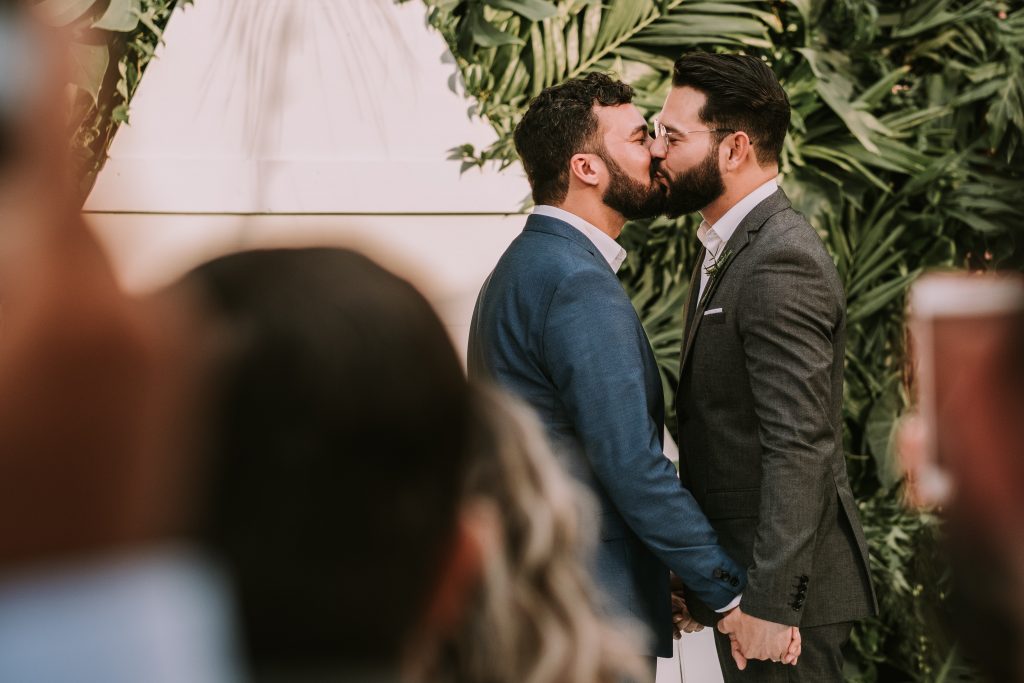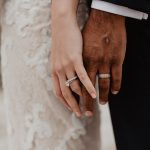Getting married is a big step. If you’re ready for the challenge, you need to be aware of the legal aspects.
Legally, South Africans have a few options to choose from when tying the knot. There are three types of marriages that are recognised under South African law: civil marriages, customary marriages and civil unions. The solemnisation and registration of these marriages are managed by the Department of Home Affairs.
Here is what each marriage means and what it entails.
Civil marriages
Civil marriage is the most common form that couples choose. Only marriage officers authorised in terms of Act No. 25 of 1961 to perform marriages may do so. Presently civil marriages are solemnised at offices of the Department of Home Affairs and at churches (by authorised marriage officers).
A marriage must be conducted in the presence of at least two witnesses in:
– a church or another building used for religious services
– a public office or private house, with open doors
– a hospital or any concerned facility in the case of serious illness of injuries
Two witnesses and the marriage officer must sign the marriage register after the solemnisation of a marriage. Then the marriage officer must issue the parties with a handwritten marriage certificate (BI-27) free of charge.
The marriage officer must then submit the marriage register to the nearest office of the Department of Home Affairs, where the marriage details will be recorded in the National Population Register (NPR).
Customary Marriages
In South Africa, the definition of a customary marriage is one that is “negotiated, celebrated or concluded according to any of the systems of indigenous African customary law which exist in South Africa”. This does not include marriages concluded in accordance with Hindu, Muslim or other religious rites.
For a customary marriage to be recognised as a valid marriage, it had to have been entered into before November 15, 2000.
For those entered into after November 15, 2000 it must comply with the following requirements:
– The marriage must be negotiated, entered into or celebrated in accordance with customary law
– The prospective spouses must be above the age of 18 years
– Both prospective spouses must consent to the marriage
The parents of a prospective spouse who is a minor must consent to the marriage. If he/she has no parents, then his or her legal guardian must consent. If the parents or legal guardian cannot consent, a Commissioner of Child Welfare can be approached for consent. Where consent is refused by either of the parents, the legal guardian or the Commissioner of Child Welfare, only a judge of the High Court may consider granting consent.
If either of the prospective spouses is already a spouse in a civil marriage, a customary marriage cannot be entered into during the subsistence of the civil marriage. A similar provision is also applied to customary marriages entered into from December 1, 1988.
Although there is no restriction on the number of customary marriages that a man may enter into, no further customary marriage may be entered into unless an order of court regulating the future matrimonial property system of his marriages has been obtained.
Registering customary marriages
Customary marriages must be registered within three months of taking place. This can be done at any office of the Department of Home Affairs or through a designated traditional leader in areas where there are no Home Affairs offices.
The following people should present themselves at either a Home Affairs office or a traditional leader in order to register a customary marriage:
– the two spouses (with copies of their valid identity books and a lobola agreement, if available)
– at least one witness from the bride’s family
– at least one witness from the groom’s family
– and/or the representative of each of the families
In the event that the spouses were minors (or one was a minor) at the time of the customary marriage, the parents should also be present when the request to register the marriage is made.
Customary marriages are registered by completing BI-1699 and paying the required fees. An acknowledgement of receipt BI-1700 will then be issued by the Department.
Registering more than one customary marriage
If a male person is already in a customary marriage and wishes to enter into another customary marriage he has to, at his own cost, get a court order from a competent court which will regulate his future matrimonial property system.
It is also possible for a male person who is already in a customary marriage to enter into a civil marriage. They should follow the normal procedure for civil marriages.
Civil Unions
The Civil Union Act (effective from December 2006) allows anyone – regardless of their sexual orientation – to marry either through a civil union, a civil marriage or a customary marriage.
Civil unions may be conducted by:
– designated marriage officers for specific religious denominations or organisations
– designated officers employed by the Department of Home Affairs and the Magistrates’ Courts
At least two competent witnesses must be present at the ceremony.
Requirements for registering a Civil Union
– Both persons must be 18 years or older to enter into a Civil Union
– Both persons may not be already married in terms of any other Act.
Documents required to conclude a Civil Union
– Valid South African identity books for both persons entering into the Civil Union
– A valid passport if one of the partners is a foreign national
– A completed Form DHA-1763 (Declaration for the Purpose of Marriage)
– Form DHA-1766 (Civil Union register), which must be completed by the marriage officer
– A completed Form DHA-1764 (Registration of a Civil Union) in which the couple must indicate whether or not they are entering into a Civil Union marriage or a Civil Union partnership
– A copy of the Divorce Order if one of the partners was previously married but subsequently divorced.
If any of the required documentation cannot be produced, one of the partners must submit an affidavit confirming the documents cannot be made available for the purpose of concluding the Civil Union.
Feature image: Pexels

















